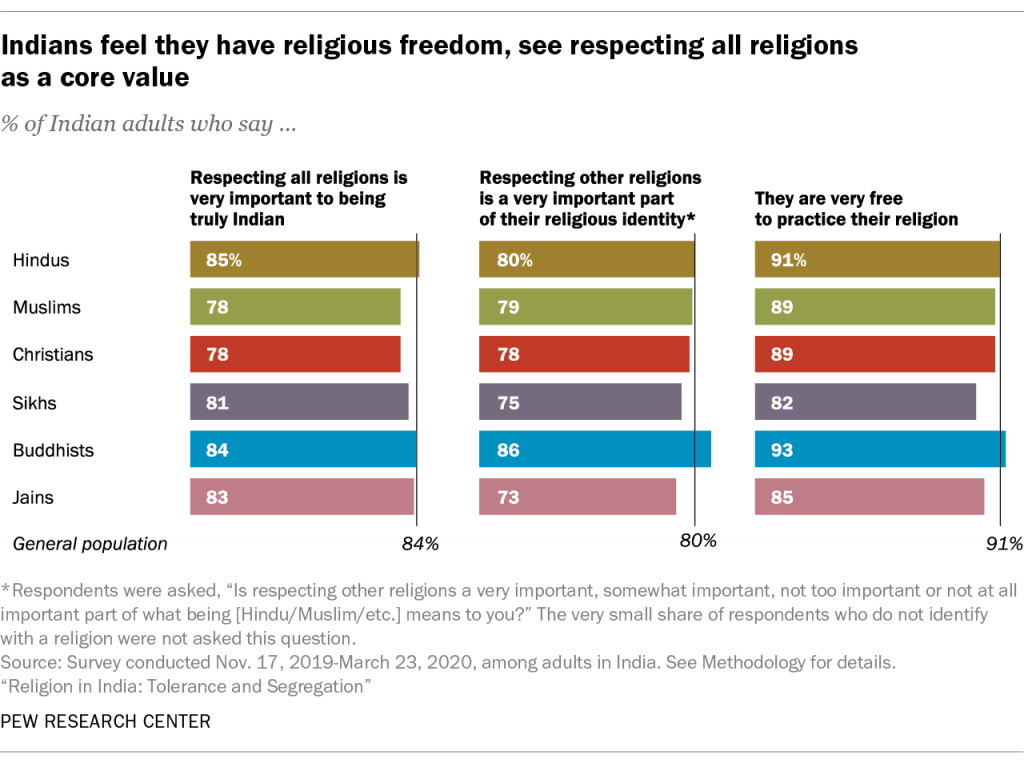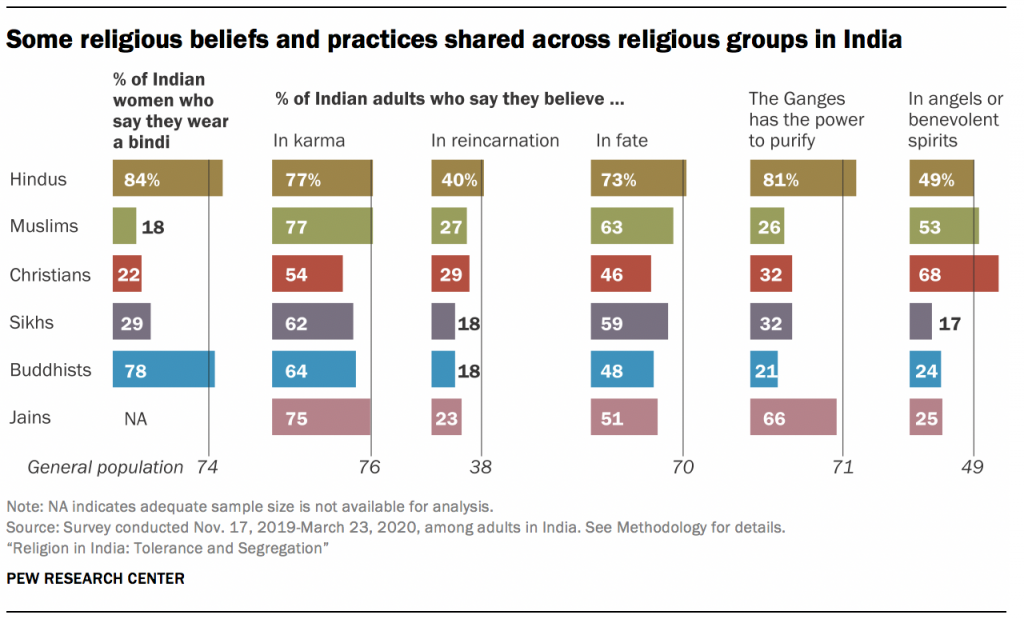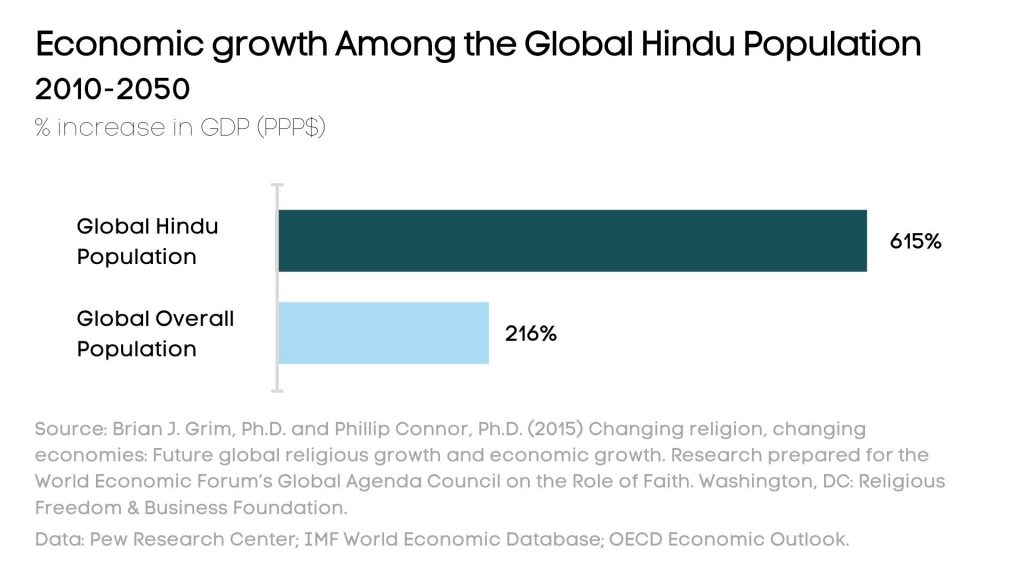 New UK Prime Minister Makes History as First Hindu to Hold Such Office in the West
New UK Prime Minister Makes History as First Hindu to Hold Such Office in the West
By Brian Grim
While some may find it surprising that the United Kingdom now has an Indian-origin and practicing Hindu as its new Prime Minister, the impact of Indian-origin politicians, business leaders and medical professionals is an entirely predictable trend.
Six top U.S. tech companies now have India-born CEOs. While it is not a matter of public record whether all of these CEOs practice Hinduism (and certainly not all India-born CEOs do, e.g., Span Construction CEO King Husein is Christian), having a rising number of US India-born CEOs draws attention to a little-known data point from our study prepared a few years ago for the World Economic Forum’s Global Agenda Council on the Role of Faith.
We estimate that global GDP at the disposal of Hindu populations is expected to increase by 615% between 2010 and 2050 (see chart). This growth in GDP is substantially more than projected overall global GDP growth of 216% for the same time period. This not only outpaces overall growth, but is makes Hindus the fastest growing economic group among all major religions, according to the study.
This means we can expect to hear much more from Hindus on the global stage in the coming years. That can, of course, be very good when compared to the anti-religious stance of their giant neighbor, China, as long as the voice is one that promotes a faith-friendly future for all (including those without a faith), as espoused by Covenantal Pluralism.
But the challenge is real: A recent survey by the Pew Research Center finds that Indians generally say they do not have much in common with members of other religious groups, and large majorities in the six major groups say their close friends come mainly or entirely from their own religious community. And reports of communal violence continue to cause concern.
On the other hand, there is a tremendous open door for Covenantal Pluralism to grow: The same Pew survey found that most people (84%) say that to be “truly Indian,” it is very important to respect all religions (see chart). Indians also are united in the view that respecting other religions is a very important part of what it means to be a member of their own religious community (80%). People in all six major religious groups overwhelmingly say they are very free to practice their faiths, and vast majority (91%) say that people of other faiths also are very free to practice their own religion.

The open door for Covenantal Pluralism is even more evident (and promising) when looking at common practices across India’s religious groups. Pew’s study also finds that India’s religious groups share several religious practices and beliefs (see chart): “After living side by side for generations, India’s minority groups often engage in practices or hold beliefs that are more closely associated with Hindu traditions than with their own. For instance, many Sikh (29%), Christian (22%) and Muslim (18%) women in India say they wear a bindi – the forehead marking often worn by married women – even though the bindi has Hindu origins. Meanwhile, Muslims in India are just as likely as Hindus to say they believe in karma (77% each), as do 54% of Indian Christians. Some members of the majority Hindu community celebrate Muslim and Christian festivals: 7% of Indian Hindus say they celebrate the Muslim festival of Eid, and 17% celebrate Christmas.”

While Western Christian theologians might scratch their heads to find that nearly a third (29%) of Indian Christians believe in reincarnation (just 11 percentage points fewer than Hindus, 40%), it reveals the actual beliefs and practices of people. As the Religious Freedom & Business Foundation emphasizes in its religious literacy programs for corporations, people cannot be best understood by beliefs theologians may hold, but by their actual beliefs, what faith organizations they belong to, and their behaviors, which may be idiosyncratic or cultural, rather than dogmatic or religiously mandated.
This open door of shared beliefs and practices – as shown by the Pew data – is one which companies in India can capitalize on and be the drivers of mutually respectful engagement across faith traditions, as is demonstrated by one of our 2021 Global Business & Interfaith Peace Award winners, Candice Corby, CEO of US and India-based Cobra Legal Solutions.
The text of Corby’s Award states: “Cobra provides rights and freedoms for all religions and beliefs in the workplace and promotes the celebration of religion and belief, encouraging employees to be their full selves including bringing their faith and beliefs to work. Cobra Legal Solutions accomplishes the goal of being a religiously inclusive workplace by observing every festival and religious holiday world-wide and by hosting a commemoration for religions in a week known as “Cobra Life Week” [see video].”
And for an example of an Indian-born CEO working for religious freedom, see this video:

